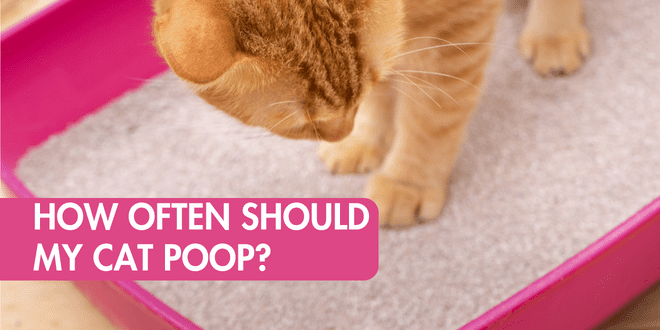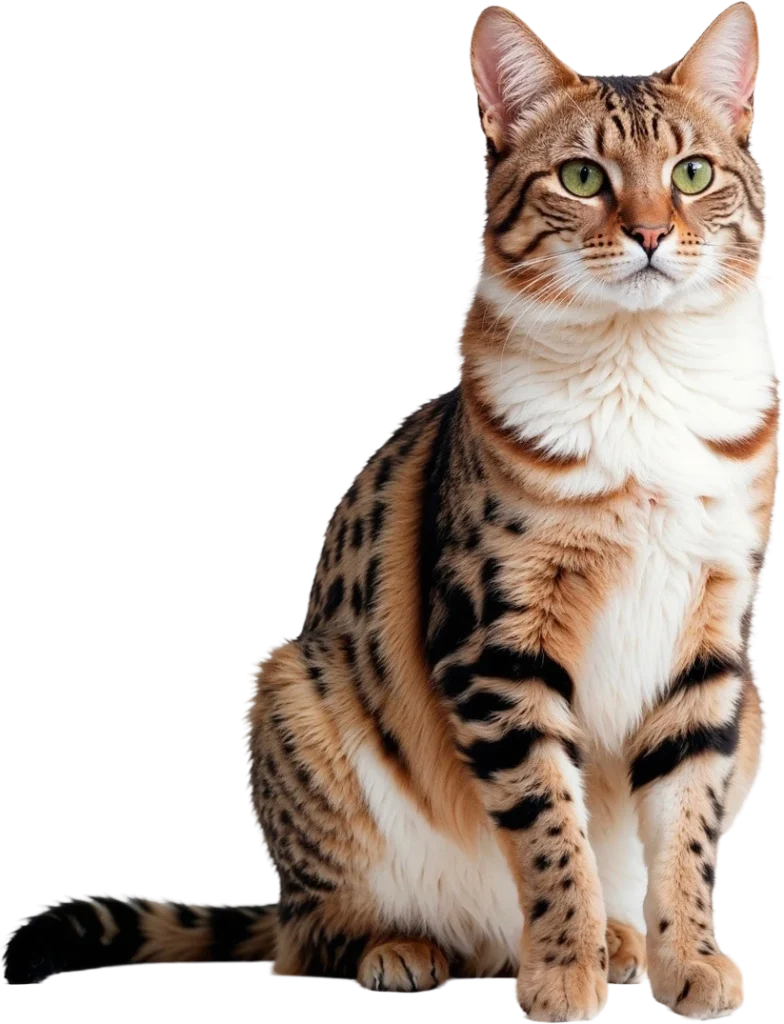
It’s not a fun subject to talk about but just as a popular children’s book states, everyone poops. Since your cat can’t tell you whether he’s having trouble with elimination, it’s up to you to monitor the litter box, not only to keep it clean, but to notice the appearance, smell, and frequency of waste. A cat’s bowel movement should be well-formed, relatively moist, dark brown in color, and without traces of mucous or blood. Your cat’s poop will certainly have an odor but it shouldn’t be unbearable.
When trying to determine how often your cat should defecate, there are several things to take into consideration:
Your Cat’s Age
In general, an adult cat will typically defecate every day. Kittens will poop more often.
Your Cat’s Activity Level
Cats who are less active may not have a bowel movement as often as a cat who gets some form of daily exercise. Regular exercise can help contribute to healthy motility.
Your Cat’s Diet
Cats fed low quality food may have more frequent or larger bowel movements because more of the food ends up unusable by the body. Cats fed too much food may also have more frequent and/or larger bowel movements. Abrupt changes in food may result in a change in how frequently your cat poops as it often causes diarrhea. Changes in food should be done gradually by mixing a little of the new food in with the current recipe over the course of several days. Food allergies can also cause diarrhea and increased frequency of defecation.
Water plays an important role in maintaining healthy bowel movements. Cats fed dry food may experience more constipation and have drier stools. Make sure your cat is drinking enough water and if you’re currently feeding an all-dry diet, talk to your veterinarian about transitioning to wet food.
Your Cat’s Medical Condition
The frequency of bowel movements may be affected by certain medical conditions. Issues such as inflammatory bowel disease, constipation due to hairballs, blockage, megacolon, arthritis, parasites, hyperthyroidism and other medical conditions, can have a direct impact on the number of times your cat will poop during the day. Obese cats may suffer from constipation and might poop less frequently (something that should be addressed by talking with your veterinarian and getting your cat on an appropriate nutritional program.)
Your Cat’s Medication
If your cat is on any medication, always ask your veterinarian what the side effects can be, including changes in elimination habits.
Environmental Factors
A stressful or unhealthy environment may influence your cat’s elimination behavior. Constipation may occur because of stress. The cat may attempt to retain poop to avoid having to come in contact with a dirty or unappealing litter box. Your cat may also eliminate away from the box due to social stress, especially if he has been ambushed while in there. he may choose to eliminate in hidden areas away from the litter box. You may not find the feces right away and just assume your cat isn’t pooping often enough.
When Should You be Concerned?
If your cat poops more than once a day, that isn’t necessarily cause for concern unless it’s due to diarrhea, illness, if something about the stool is unusual, if your cat appears uncomfortable or if it’s a change from your cat’s normal elimination habits. Cats who eat more may poop more often. Always talk to your veterinarian if you have questions about the frequency and/or appearance of your cat’s bowel movements. Your veterinarian knows your cat’s health history and can advise you on whether your cat’s elimination habits are normal.
If your cat hasn’t had a bowel movement in a couple of days, see your veterinarian. Although many people might associate constipation as normal in cats, it isn’t normal. If you notice your cat straining, it’s time for a veterinarian visit. Sometimes cat parents assume straining is due to constipation but it may be the cat is straining to urinate and that’s extremely serious. Don’t skip the veterinary visit.
Monitor the Litter Box
Be diligent about monitoring what is or isn’t happening in your cat’s litter box so you can be alerted right away to changes in elimination habits. Scooping the litter box isn’t fun but it’s an important tool in keeping track of your cat’s health. Scooping only takes a few seconds out of your day but it can make a huge difference in your cat’s health.
Need More Information?
For more information on cat behavior and training, refer to the books by best-selling author, Pam Johnson-Bennett. Pam’s books are available at bookstores and online. We’ve included Amazon links here on our website.
If you have a question about your cat’s behavior or health, contact your veterinarian. This article is not intended as a medical diagnosis nor is it a replacement for your cat’s regular veterinary care. This article is for general information purposes only.




